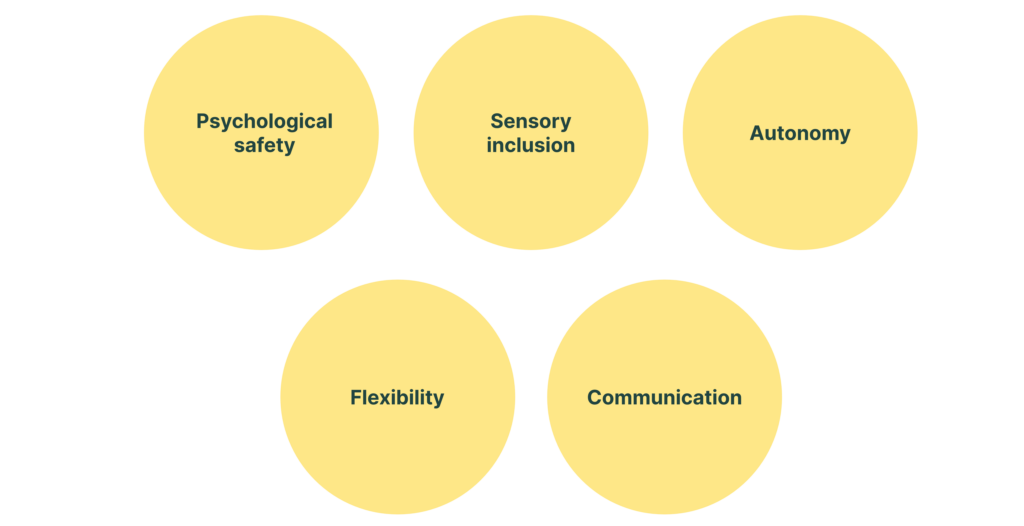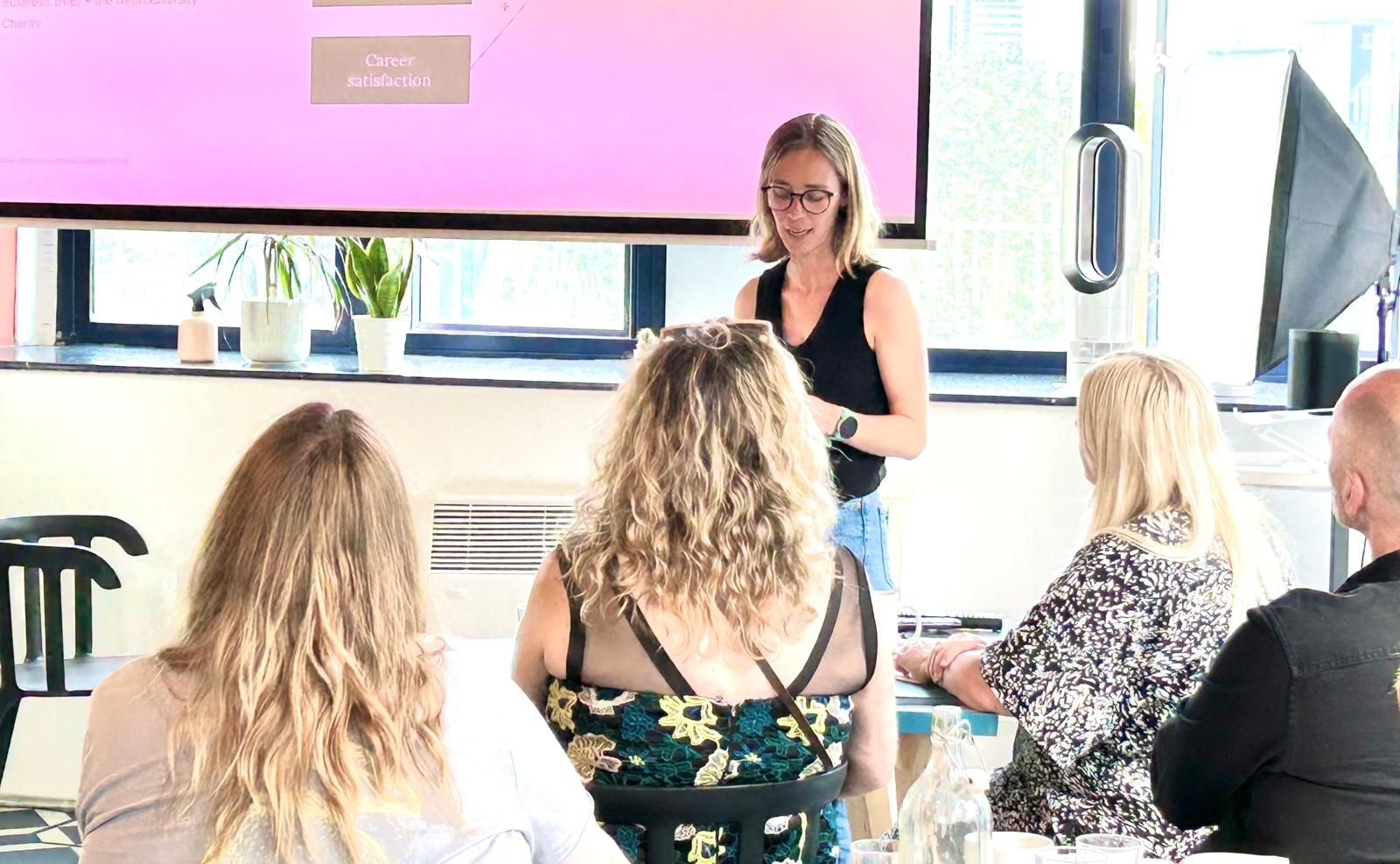In our session on “co-creating a neuorinclusive workplace”, we explored neuroinclusivity through a delicate mix of lived experience story-telling and person-centred exploration of what workplaces can do to support their neurodivergent clients, colleagues, and collaborators.
The session started with our Director of Behavioural Insights, Dr Julie Van de Vyver, sharing her own personal story with neurodivergence. She spoke about the power of creating neuro-inclusive and psychologically safe environments, and the dangers of not.
Smash the societal box – how many of us does it really work for?
We explored the current social context around neurodiversity, which is complex and rapidly changing. Dismissiveness and stereotyping are still common-place. Representation of, and support for, multiply marginalised neurodivergent people is seriously lacking. Employment rates for autistic people are abysmal, and the key barrier is a lack of understanding from employers and colleagues. Accessing diagnostic assessments in the UK is currently extremely challenging, and waiting lists in most regions are over 3 years. This also means delays in accessing formal support.
We explored what workplaces can do to cultivate a safe and supportive atmosphere that appreciates the variety of ways people’s brains function. We discussed the following five fundamentals to embedding neuroinclusive practices.

Key recommendations: Sensory-inclusion
Be mindful that office spaces (especially open plan) can cause significant sensory overload for neurodivergent colleagues.
- Could you offer a desk in a quieter part of office?
- Could you offer access to a truly quiet and/or sensory space?
- Could you provide more flexibility to work from home?
- Could you provide flexibility to commute outside of rush hour?
Key recommendations: Psychological safety
To create a psychological safe workplace:
- Normalise and support: the use of noise cancelling headphones, the use of fidget toys, and engagement in special interests.
- Respect and appreciate: diverse ways of working and communicating and diverse preferences and needs regarding ‘out of office’ socialising.
- Ensure team, and especially senior management, are genuinely supportive and knowledgeable.
- Facilitate meaningful connection and belonging. Appreciate the different ways in which people cultivate connection.
- (Non-defensively) reflect on the inclusivity and psychological safety of your own workplace culture.
- Be mindful that your neurodivergent colleagues are likely masking – so when they do speak up – listen. Believe them.
Key recommendations: Communication
Prioritise clarity and conciseness across all communication.
Consider taking a What by When and Why approach to instructions, while giving yourself and colleagues the necessary space and time to work out what is needed.
- What exactly do you need?
- When exactly do you need each of those things?
- Why exactly do each of those things need to be done?
Be curious about the processing needs of your colleagues. For example, ask how they generally prefer to receive instructions (e.g. in writing, verbal, both).
Where possible, try to minimise surprises. For example, could you ensure that written agendas are provided ahead of meetings?
Key recommendations: Flexibility and autonomy
Neurodivergent individuals may need time to recover from time in the office, social interactions, and bursts of hyperfocus. Workplace flexibility and autonomy helps align schedules with peak productivity hours and build in moments of recovery – preventing burnout and exhaustion. Providing employees with flexibility is absolutely crucial. This can include flexibility around:
- Hours and schedules
- Place of work / location
- Methods for collaboration
Appreciate that neurodivergent individuals may complete work using a different process than neurotypical individuals. We recommend using an outcome based approach to monitor performance, rather than a time or process based approach.
Key recommendations: Person-centred and co-created support
As well as tackling these fundamentals, it is also important to talk to your employees about what they need to do their best work. Some individuals may need tailored support and it’s important to ensure that this is provided in a person-centred way. This involves creating a culture where people feel able to ask for what they need, knowing their privacy will be respected. Facilitate safe and person-centred conversations with your team. Respect and appreciate that needs vary over time and between individuals. Appreciate that people might need support or time to understand their needs. They may also not have the language to communicate their needs. Neurodiversity-affirming coaches can be absolutely fantastic in supporting neurodivergent colleagues to understand and communicate their needs and to reach their potential. However, it is important to note that these types of coaches can also support line managers and employers too. We need to recognise that this is a two way street in working effectively together. Identifying support strategies should not fall solely on the neurodivergent person. We need to meet employees half way.
